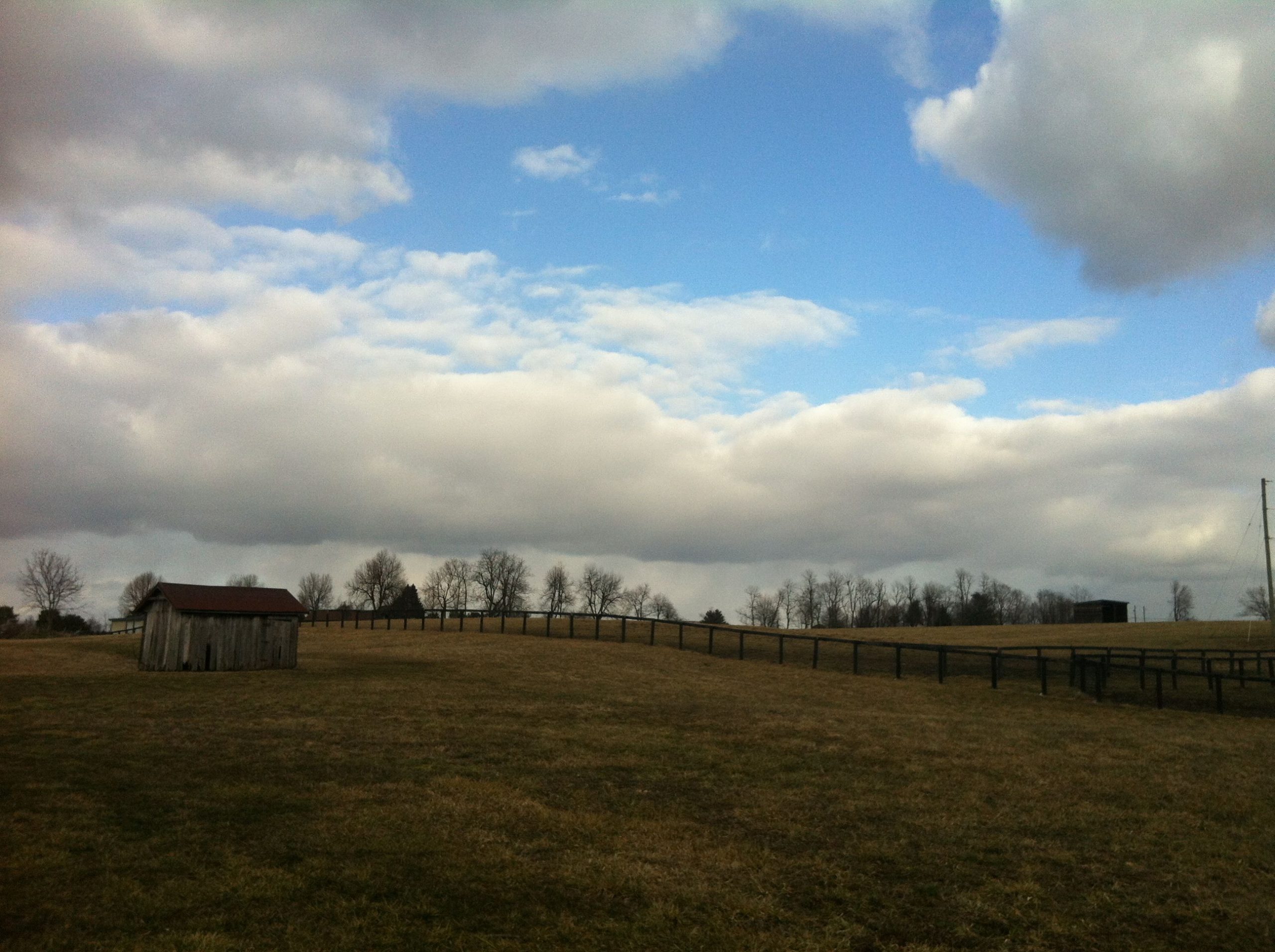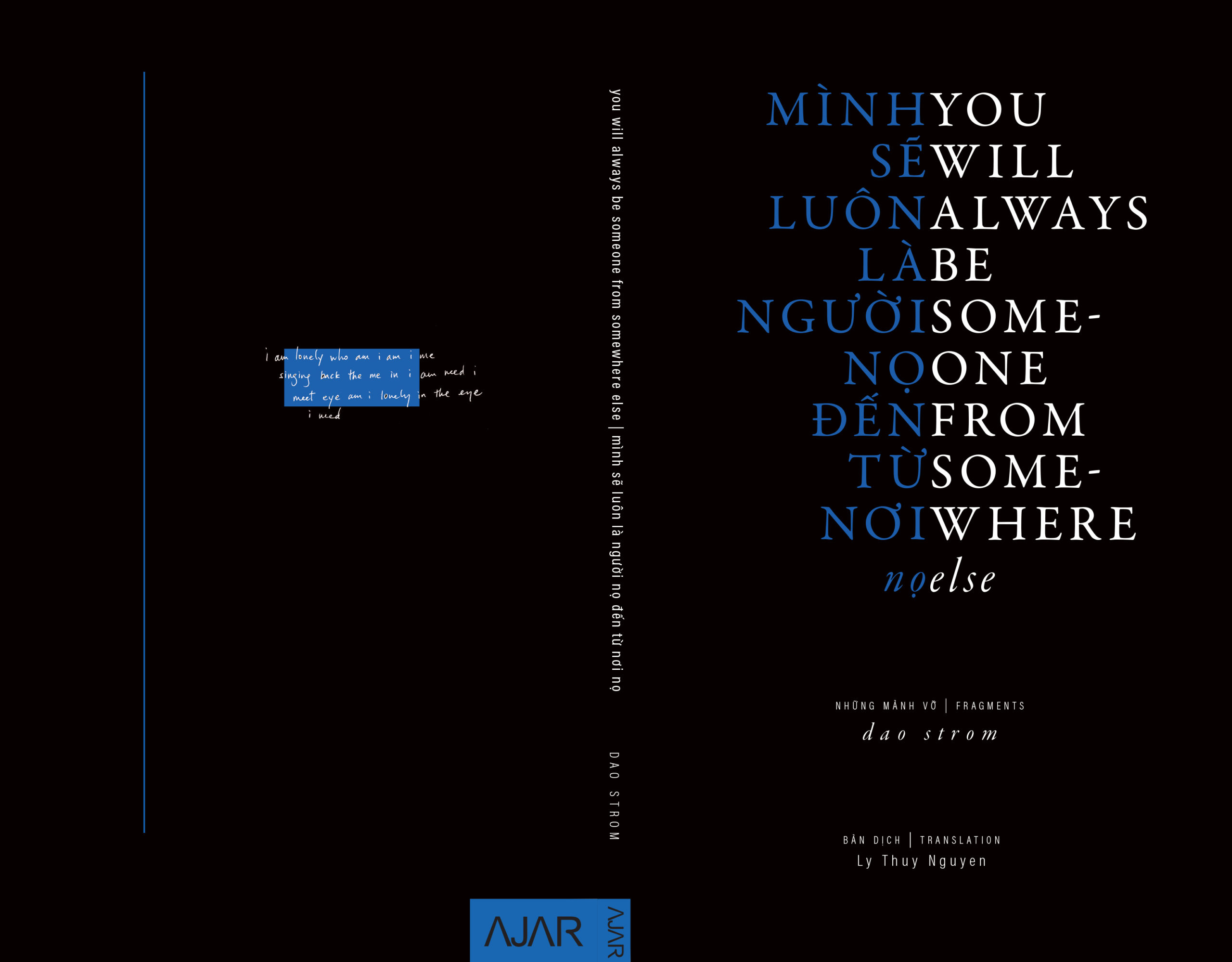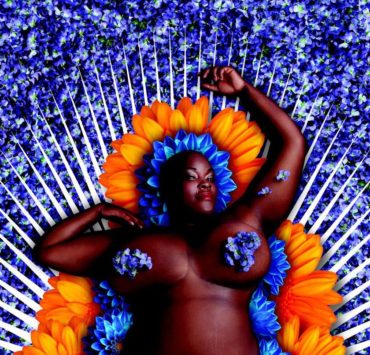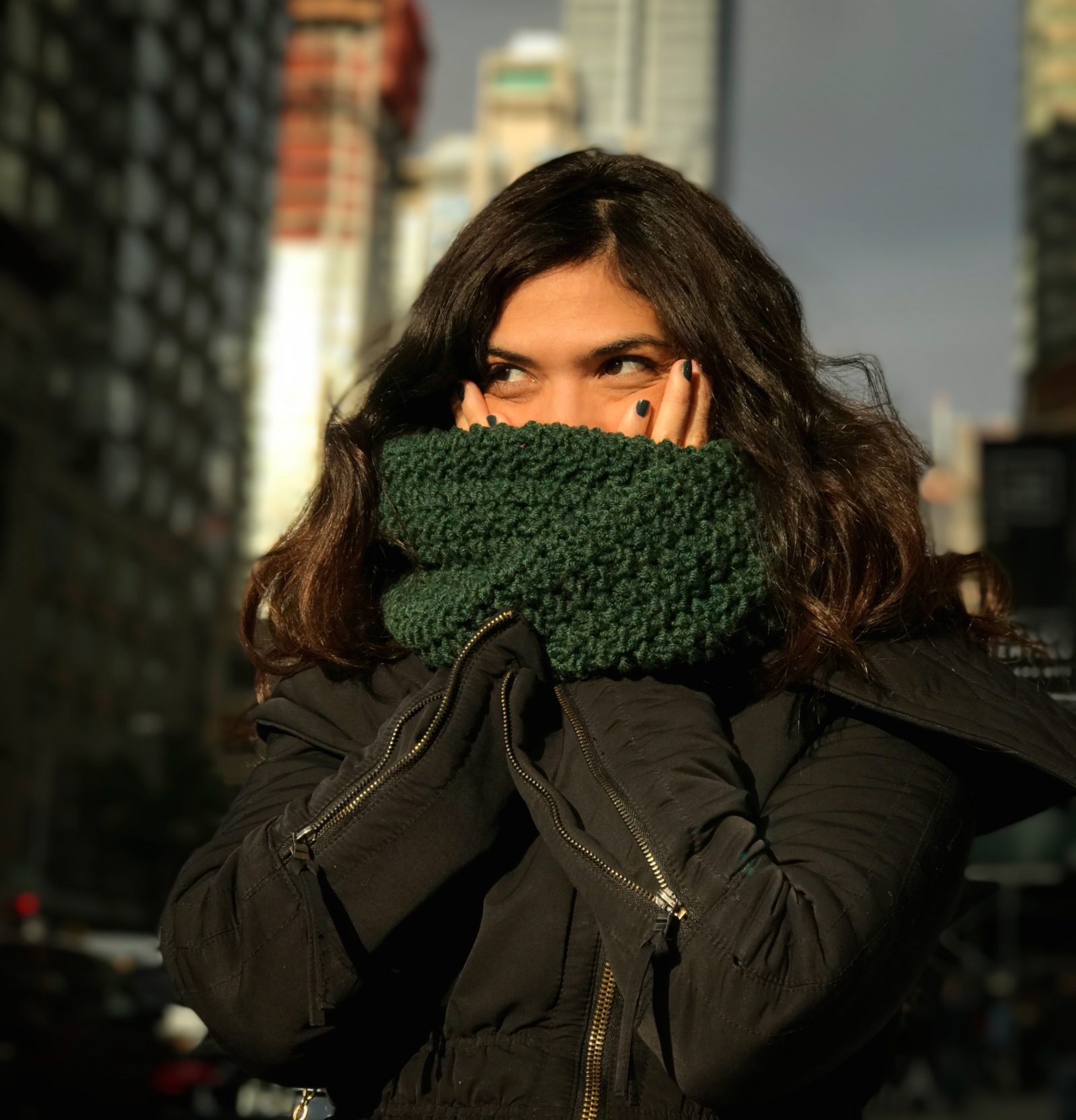
On a windy evening I met Laura Gómez in NYC under the Flatiron building where we both had matcha tea and finally caught up. Most people know Laura Gómez as Blanca from Orange Is The New Black where she portrays an unstable inmate at Litchfield Penitentiary who is often unkempt with a Kahloesque uni-brow. I came to know Laura’s range as an actor, when I saw her read a completely different kind of character in Andrea Thome’s brilliant theatrical work-in-progress, Undocumented at Joe’s Pub where she portrays an undocumented immigrant young woman named Mariposa. Soon after I learn that she’s also a writer, both for film and theater, and has already produced a number of short films. Last night I stayed up watching the new film, Sambá now on HBO, where Laura stars as the unforgettable Luna. The movie is set in Dominican Republic and is about a washed-up boxer who helps train a troubled newcomer returning home after being in prison for 15 years in the U.S. For those who love boxing films, the plot will feel familiar. What makes this film a must-see is the poignant story and honest storytelling, featuring a strong female character. This is not surprising being that one of the directors is Laura Amelia Guzmán.
Angie Cruz: In addition to studying film at NYU where you produced, directed and wrote your first film, you’re also writing plays and juggling numerous acting gigs, one of which is your brilliant work in Orange Is The New Black. Your fire and energy to resolver, as we say in Dominican Republic, the ability to make things happen for yourself, is something that resonates a lot with me as a Dominican woman. It sounds like you’re not only trying for something, but you are also creating, developing, carving out the spaces that may not yet be available to latina actresses. I read somewhere, that for you, acting started to feel passive to you. Is that what drove you to write and and produce your own films?
Laura Gómez: Yes, it felt like I had no control over anything in my career, and I was just waiting for things to happen. That’s when I took the filmmaking course at NYU. This was before Orange is the New Black. I wasn’t getting auditions, I didn’t have representation, and when I did have my first manager still nothing was really happening. I went to Spain for three months just to give it a try because in New York, I was losing hope in everything. That’s when I started writing. Then I heard about a scholarship at the Carolina Foundation in Spain for Latin American writers, where I could go for two months and work on a script. I had never written a screenplay before, but I’ve read plenty and I’m a film junkie, so it was not that difficult for me to adjust my brain. I wrote a first draft of a script, and I sent it to be considered. I wasn’t sure I would get accepted, but I did.
AC: How long was the script?
LG: Ninety minutes. I wrote it in a few weeks because the deadline was coming and I just wanted to send something. It was based on a novel called, Mara, that my aunt wrote.
AC: It was in Spanish or English?
LG: The script was in Spanish and the grant was in Spain. That trip changed my perspective on many things. Because I was all of a sudden surrounded by these amazingly talented Latin American screenwriters. Some of them have gone on to make very successful films. From my group came Güeros from Mexico, another was Maria from Colombia and the Peruvian film, La Última Tarde, among others. These were my friends writing their scripts and what I kept from that was the fact that they were all writers and filmmakers doing their own thing. So when I came back home I decided, I’m going to take a leap of faith and take these filmmaking and screenwriting courses. I left my job as a translator in an advertising agency—I took a sabbatical—hoping that, who knows, something would happen. From that, To Kill A Roach happened.
AC: Which I saw. I thought it was a great first short film. Very funny.
LG: Yeah. It’s a low-budget, student short film but it’s honest screenwriting-wise. It was very personal for me, and that’s what I discovered: I write about what I know -or what I’m trying to make sense of- and what I know is my surroundings and myself. I won an award with that short, within my NYU group. They gave me part of the equipment for my next project. So of course I wrote, directed and produced another short, Hallelujah.
AC: Is that on Youtube?
LG: Yeah. You have to look “Hallelujah short film”. Otherwise you will find a lot of religious stuff. Right now, I continue to write but stay very focused on acting.
AC: And you should be. It’s a good moment for you. You’re amazing in that show, Orange Is The New Black..
LG: Oh, thank you!
AC: You really are. I started watching the show again and thought how difficult it must be to play someone as “special” as Blanca with such complexity. There’s a lot of subtext in your interpretation.
LG: She’s quite something.
AC: She’s fierce too, right? It’s very complicated. I originally thought the characters in OITNB, the latinas in particular, were flat. But then I felt like they got more interesting. Maybe because we’re now seeing their backstories.
LG: That’s the feeling of many people. I think because the show starts from a stereotypical place, some of the characters are in the back burner, then with time they start to draw them out. I think what they did with Blanca was a very interesting for Season Five.
AC: Did you influence the development of the character at all?
LG: I have no idea. I guess my temperament? But, no, it was shocking to me. Everything that has happened with this character throughout the evolution of the show has been a surprise to me. Including the fact that I became a regular this season. That was a nice surprise.
AC: You deserve it.
LG: Thank you. It’s the type of show where you have such a wonderful group of actors that are very talented.
AC: Because you also define yourself as an activist I could imagine that one of the exciting parts of being on the show is how the show often incorporates social justice issues.
LG: That’s why films and art in general are so important. They make people think about topics that would not otherwise be in their everyday conversations.
AC: I have to say: one of the most exciting things for me about watching Orange is that there are so many latinas on the screen. It’s true they are in prison?! But, it’s exciting to see them on the screen! And there are so many Dominican actresses on the show. Which is also amazing. Who’s Dominican? Dascha Polanco—
LG: Also Selenis Leyva, Jackie Cruz, Jessica Pimentel and myself. I’ve been reflecting about the terms activism and feminism, thinking about the layers and what do they mean. Do they divide or connect us?
AC: The intersections?
LG: I feel like my activism comes through my work. Or at least that’s what I aspire to. I’ve come to understand that that’s where my biggest power lies. In the work I can do. And how I do what I do. For instance, when I write, consciously or not, I do write female characters, influenced by myself and my surroundings, so usually I write a character that is a strong woman in perhaps vulnerable situations. I want to see us portrayed in a non-stereotypical way. Or in everyday situations, like a woman who is getting over a breakup and she just happens to be Latina. I really don’t put a #Latina to my work. It kind of goes by the nature of the characters, or whatever their experiences are. That’s something that I feel is lacking, and that’s where we’re missing out.
AC: So tell me about the new movie your starring in, Sambá. It’s now out on HBO and Amazon VOD!
LG: I’m a strong, independent woman running a boxing gym, who happens to be Dominican, there you go.
AC: Did you have a hand in developing the character?
LG: Well, I’m always very cautious when I say I helped develop the character. I did as much as an actor helps develop their character, right? So it was already a good script. But it was missing some bits and pieces. One of my main concerns was why—not necessarily why she was someone’s girlfriend—but her role as the girlfriend felt passive. And the writer and directors were very open for us actors to be a part of the process, and with my character, especially one of the directors, Laura Amelia Guzmán, totally got where I was coming from, which is part of the importance of having women behind the camera. So the character evolved to a point where they were like, fine, it wasn’t about her being on her own, but that she’s strong enough to be by herself. And yes, the role evolved into a very nice place where she was a woman who actually owned the gym.
AC: So what are some of your influences–personally, literary or art-wise?
LG: I’m very open when it comes to reading. My dad always had a library at home and I was very much into the classics growing up, Dostoevsky, Kafka, Austen. That’s how my fascination for literature began, and also of course, Gabriel Garcia Marquez, who definitely shaped my childhood, but in terms of my work, well now you have someone like Junot Diaz whose honesty I simply love and I’ve been reading Joan Didion, same thing, so open and vulnerable with her work. I like the work of people who are not afraid to show their “weaknesses or flaws.” Frida Kahlo comes to mind. It’s very brave and it’s been inspiring, especially in my writing. On a personal level, I think both my grandmothers, for their strength, but especially my paternal grandma was -unknowingly- the first feminist in my family. In the early 60’s at the age of 40 she divorced my grandpa and left with her eight children from the countryside to the capital because she wanted them to receive a formal education.
AC: He didn’t want to move?
LG: My grandfather was an old countryman set in his old ways, and you know, not very educated, tough, rather old school. So that was not an easy thing to do back then, leave an old fashioned husband and move with eight kids, but she did, and opened a pension that she ran by herself. She was determined that her children would be educated. My father later moved to the U.S. and went to college for sociology, never finished, but his mother’s efforts stayed with him so he’s always been very supportive of my choice to be an actor. My mother was an educator for many years. She’s another strong woman that has influenced my way of being. I see it more now. Other circumstances, but she also pushed her brothers and sisters to move forward in life. There’s also my aunt who is a diplomat and a writer. We’re very close. She was in the university and she’s just ten years older than me, so she would take me to her movie clubs. I was going with her to watch films when I was a kid.
AC: They were probably completely inappropriate.
LG: (Laughing) Completely inappropriate! Absolutely.
AC: Do you have a memory of a film?
LG: I have some. I remember seeing Mask. I must have been six or so. Mask was with Eric Stoltz and Cher, and it wasn’t that it was inappropriate, it was that I was too young, and it was very shocking to me. There were a lot of why’s. Why is that boy like that? Why is his mother…? Why did he die?
AC: And that’s why you write. ::Laughs:: You have a lot of questions.
LG: Yeah. I remember my father taking me to see Amadeus when I was nine, because I was studying piano, and he said this is the greatest pianist that ever lived you should see this film. It was shocking to me to see it. I didn’t understand but I was fascinated. Why was Salieri jealous? Was he trying to kill Mozart? Why?… So yeah, you’re right. I write to try to make sense of things that I can’t quite comprehend.
AC: Can you sing? I’m just curious.
LG: I can carry a tune. I take voice lessons but I’m not a singer, no. But, yeah, that’s how literature came into my life. So I was always at the school’s library, I was very good at school. I liked to study. I liked learning. I eventually studied advertising but I always wanted to come to New York to become an actor.
AC: You knew that already.
LG: Yeah. So my mother said ok, but can we take a minute and get a career?
AC: Right. Practical Dominican-style immigrant.
LG: We lived in Santo Domingo though, but she is very pragmatic and I don’t blame her. I was seventeen. I also think it was maybe a blessing in disguise because I wasn’t really ready at seventeen to move to another country and leave my family. This city would have eaten me alive. Or not, but I don’t think it would have been too smooth.
AC: Yeah that makes me think about all the ways women are preyed on in your industry. I mean all the industries. But right now with #timesup and #metoo and women speaking out, there is more awareness.
LG: I know I have been in situations, especially in those vulnerable years, where I didn’t necessarily feel anything to be that extreme, but I could see how it could’ve gone there. I can totally see it.
AC: Like you felt that it could’ve happened but you walked away from it?
LG: Yes. I have very sharp instincts and I know that at some points I took myself out of situations, but not consciously. I think it was more instinctual, and it’s a very vulnerable place to be. When you have dreams and you don’t really know that there could be this type of predatory behavior. I was a very naive seventeen year old.
AC: I also think, for me, I was raised to distrust men.
LG: I wasn’t really raised like that.
AC: I was told very early on. Be careful. Don’t wear short skirts around the men. Don’t sit on their laps, etc… always implying that men can’t control themselves.
LG: I get it, but I have many men in my life that are good people. I think it’s an individual by individual case, but I can see the patriarchal society we live in, obviously, we are seeing it right now, disappointing us one by one. And shocking us. Because some cases are shocking. I don’t think they’re all the same, there are different layers and circumstances, but…
AC: And extremes.
LG: Extremes and non-extremes, yes. Right now we’re in a very delicate place because we’re responding to all of them almost on the same level, but I do see how this is an epidemic within the patriarchy. And it has to change. I hope that we find a way of healing that is not to destroy every man or person who disagrees with us, but to also educate, re-educate our society. Because we need a lot of reeducation. I think we’re heading there.
AC: What are some films—since you’re a filmmaker too—that you love? That have influenced you?
LG: I’m a big film junkie, right? So there are so many… The Godfather, Annie Hall, The Bridges of Madison County, Reds are some of my all time favorites that I never get tired of watching. Cinema Paradiso had a big impact on me. But right now I’m very much into Latin American and Iranian films. I love Asghar Farhadi from Iran and I love what is happening in Latin America in general. I mentioned the film Güeros, which is great, and then Itzcanul, La Jaula de Oro, The Club, and A Fantastic Woman, which I saw recently -I think wonderful films are coming from Chile in the last few years- and I was introduced to the films of Ana Katz from Argentina and it’s been magical because she’s also an actor-director who shows strength and vulnerability in her characters. I’m into always challenging myself with filmmaking that may have not been on my radar. I like discovering new films. So I watch a lot of foreign and independent films.
AC: Has there been a book you’ve read that you would like to see turned into a movie? That you want to be a protagonist of? Or want to star in that role?
LG: Yeah, maybe!
AC: Is there one where you’re like, I’d really be good as this character!
LG: It’s not necessarily a female role, but you know the Junot Diaz book. Oscar Wao is definitely something that I would like to see become a film.
AC: Is there a part for you?
LG: The sister maybe. But that’s what I’m saying—it’s not necessarily because of that- but because I think it might be an interesting film.
AC: I was talking to someone about how there are potentials in certain women actors that no one can see because they keep typecasting them, so I was wondering if there’s a type of character that you wish you could play, that you haven’t been given the opportunity to play, but you know you could do it if they gave you a chance to do it.
LG: I mean, I’ve been working so much on a character, like Blanca Flores, that I really enjoyed my role in Sambá, where I could show a different side, the attractiveness that’s comes from woman’s strength. But in general, I am very interested in a role that can allow me to be more vulnerable, perhaps Serafina Delle Rose from Tennessee Williams’ The Rose Tattoo -granted, this role was portrayed by Anna Magnani, who was the best there ever was- but that would be a dream character.
AC: I saw that vulnerable side of you in the reading of Andrea Thome’s play Undocumented. You were so sweet and dreamy. I thought immediately how much range and versatility you have. This is what I was talking about. Some actors you meet in person and it’s almost like the character has walked out of the screen, but for me the YOU I am sitting here with is not Blanca and not even Luna. Yes they are in you, but it’s clear you are acting.
LG: I appreciate that!
AC: So what are you writing now?
LG: I’m writing a play. It’s called The Past Is a Mirage. It’s extremely personal, about a marriage’s journey from beginning to end in a 7 year period and the desperate and eventually peaceful process of healing afterwards. I’m very excited about it because I’m now part of a women’s writers group. It’s called, Women Artists Writing (WAW) and it’s lovely. That group has really solidified the play for me. I had my first reading recently. So I’m rewriting it now and I’ll be presenting a more official reading very soon.
AC: Will you invite me?
LG: I will invite you.
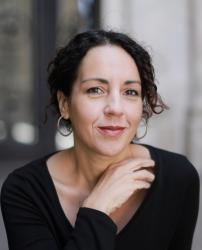
Angie Cruz's novel, DOMINICANA is the inaugural bookpick for GMA book club, and the Wordup Uptown Reads selection for 2019. It was also longlisted for the Andrew Carnegie award in excellence in fiction for 2019. It was named most anticipated/ best book in 2019 by Time, Newsweek, People, Oprah Magazine, The Washington Post, The New York Times, and Esquire. Cruz is the author of two other novels, Soledad and Let It Rain Coffee. She's the founder and Editor-in-chief of the award winning literary journal, Aster(ix)and an Associate professor at University of Pittsburgh where she teaches in the MFA program. She splits her time between Pittsburgh, New York, and Turin.





